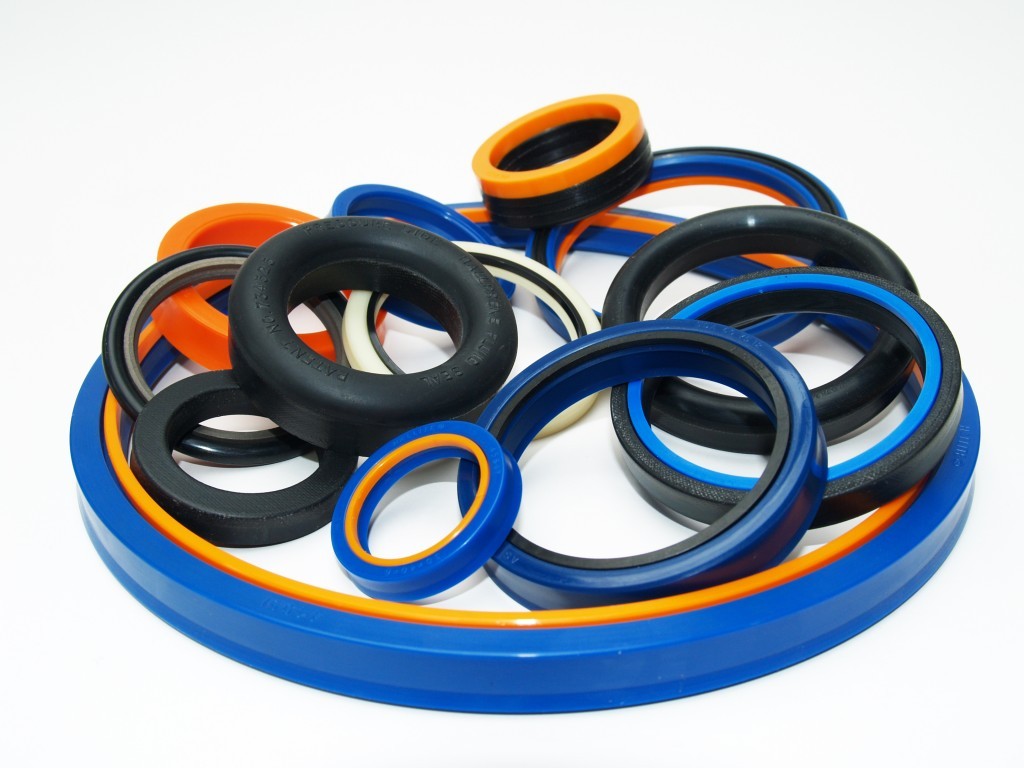Hydraulic Seals

Contact : +91 97404 04503
Understanding Hydraulic Seals: Essential Components for Reliable Performance
Hydraulic seals are crucial components used in hydraulic systems to ensure smooth operation and maintain the efficiency of machinery. They are designed to prevent leakage of hydraulic fluids and protect various parts of hydraulic equipment from contaminants. With the right hydraulic seals, you can enhance the performance, longevity, and reliability of your hydraulic systems.
What Are Hydraulic Seals?
Hydraulic seals are specialized seals that are used to contain hydraulic fluids within a hydraulic system. They create a barrier between moving parts and static parts, preventing leakage of the hydraulic fluid. These seals are typically made from durable materials such as rubber, polyurethane, or composite materials, which can withstand high pressure and various operating conditions.
Types of Hydraulic Seals
There are several types of hydraulic seals, each designed for specific applications and conditions. The most common types include:
-
O-Rings: These are the most widely used hydraulic seals, known for their simplicity and effectiveness. They are circular rings made from elastomers and are used in static and dynamic applications to prevent leakage.
-
Rod Seals: These seals are used in hydraulic cylinders to prevent fluid leakage along the rod. They are designed to withstand high pressure and ensure the smooth movement of the rod.
-
Piston Seals: Piston seals are used in hydraulic cylinders to prevent leakage between the piston and the cylinder wall. They are essential for maintaining the pressure and efficiency of the hydraulic system.
-
U-Cups: U-cup seals are designed to handle both static and dynamic sealing applications. They are commonly used in hydraulic cylinders and provide excellent sealing performance.
-
Wipers: Wiper seals are used to remove contaminants from the rod before they can enter the hydraulic cylinder. They protect the internal components from damage caused by dirt and debris.
Materials Used in Hydraulic Seals
The performance and durability of hydraulic seals largely depend on the materials used in their construction. Common materials include:
-
Nitrile Rubber (NBR): Known for its resistance to oils and fuels, NBR is a popular choice for hydraulic seals.
-
Polyurethane (PU): Polyurethane seals offer excellent abrasion resistance and are suitable for high-pressure applications.
-
Fluorocarbon (FKM): Fluorocarbon seals are highly resistant to extreme temperatures and chemicals, making them ideal for demanding environments.
-
Hydrogenated Nitrile Rubber (HNBR): HNBR provides enhanced resistance to heat, oil, and wear, making it suitable for high-performance applications.
Benefits of High-Quality Hydraulic Seals
Investing in high-quality hydraulic seals can offer numerous benefits, including:
-
Leakage Prevention: High-quality seals effectively prevent hydraulic fluid leakage, which can lead to loss of pressure and reduced efficiency.
-
Improved Efficiency: Proper sealing ensures that hydraulic systems operate smoothly and efficiently, reducing energy consumption and operating costs.
-
Enhanced Longevity: Durable seals reduce wear and tear on hydraulic components, extending the lifespan of the equipment.
-
Contaminant Protection: Effective seals protect hydraulic systems from contaminants, reducing maintenance needs and preventing damage.
Choosing the Right Hydraulic Seals
Selecting the right hydraulic seals involves considering factors such as the operating pressure, temperature, fluid type, and environmental conditions. Consulting with a seal manufacturer or expert can help you choose the best seals for your specific application.
In conclusion, hydraulic seals are essential for maintaining the performance and reliability of hydraulic systems. By understanding the different types, materials, and benefits of hydraulic seals, you can make informed decisions to ensure the optimal operation of your equipment. For businesses relying on hydraulic systems, investing in high-quality seals is a crucial step toward achieving operational efficiency and longevity.
